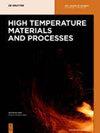基于多聚类动态自适应选择集成学习的转炉末端碳含量和温度软测量方法
IF 1.5
4区 材料科学
Q4 MATERIALS SCIENCE, MULTIDISCIPLINARY
引用次数: 0
摘要
转炉炼钢终点的精确控制对节能减排、提高钢材质量具有重要意义和价值。终点控制的关键在于准确预测碳含量和温度。转炉炼钢是一个样本波动较大的动态过程,传统的集成学习方法忽略了查询样本之间的差异,使用所有子模型进行预测。每个子模型的不同性能导致集成学习的性能下降。针对这一问题,提出了一种基于多聚类动态自适应选择(MC-DAS)集成学习的软测量方法,用于转炉炼钢终点碳含量和温度预测。首先,为了保证集成学习基模型的多样性,我们提出了一种具有不同数据分区特征的聚类算法,构建了一个多样化的基模型池。其次,提出了一种模型自适应选择策略,该策略包括为单个查询样本构建不同的相似区域,并评估模型在这些区域中的性能,以确定每个查询样本最合适的模型和权重组合。与传统集成学习方法相比,对转炉炼钢实际过程数据的仿真结果表明,碳含量在±0.02%误差范围内的预测精度达到92.8%,温度在±10℃误差范围内的预测精度达到91.6%。本文章由计算机程序翻译,如有差异,请以英文原文为准。
Soft sensor method for endpoint carbon content and temperature of BOF based on multi-cluster dynamic adaptive selection ensemble learning
Abstract The accurate control of the endpoint in converter steelmaking is of great significance and value for energy saving, emission reduction, and steel quality improvement. The key to endpoint control lies in accurately predicting the carbon content and temperature. Converter steelmaking is a dynamic process with a large fluctuation of samples, and traditional ensemble learning methods ignore the differences among the query samples and use all the sub-models to predict. The different performances of each sub-model lead to the performance degradation of ensemble learning. To address this issue, we propose a soft sensor method based on multi-cluster dynamic adaptive selection (MC-DAS) ensemble learning for converter steelmaking endpoint carbon content and temperature prediction. First, to ensure the diversity of the ensemble learning base model, we propose a clustering algorithm with different data partition characteristics to construct a pool of diverse base models. Second, a model adaptive selection strategy is proposed, which involves constructing diverse similarity regions for individual query samples and assessing the model’s performance in these regions to identify the most suitable model and weight combination for each respective query sample. Compared with the traditional ensemble learning method, the simulation results of actual converter steelmaking process data show that the prediction accuracy of carbon content within ±0.02% error range reaches 92.8%, and temperature within ±10°C error range reaches 91.6%.
求助全文
通过发布文献求助,成功后即可免费获取论文全文。
去求助
来源期刊

High Temperature Materials and Processes
工程技术-材料科学:综合
CiteScore
2.50
自引率
0.00%
发文量
42
审稿时长
3.9 months
期刊介绍:
High Temperature Materials and Processes offers an international publication forum for new ideas, insights and results related to high-temperature materials and processes in science and technology. The journal publishes original research papers and short communications addressing topics at the forefront of high-temperature materials research including processing of various materials at high temperatures. Occasionally, reviews of a specific topic are included. The journal also publishes special issues featuring ongoing research programs as well as symposia of high-temperature materials and processes, and other related research activities.
Emphasis is placed on the multi-disciplinary nature of high-temperature materials and processes for various materials in a variety of states. Such a nature of the journal will help readers who wish to become acquainted with related subjects by obtaining information of various aspects of high-temperature materials research. The increasing spread of information on these subjects will also help to shed light on relevant topics of high-temperature materials and processes outside of readers’ own core specialties.
 求助内容:
求助内容: 应助结果提醒方式:
应助结果提醒方式:


